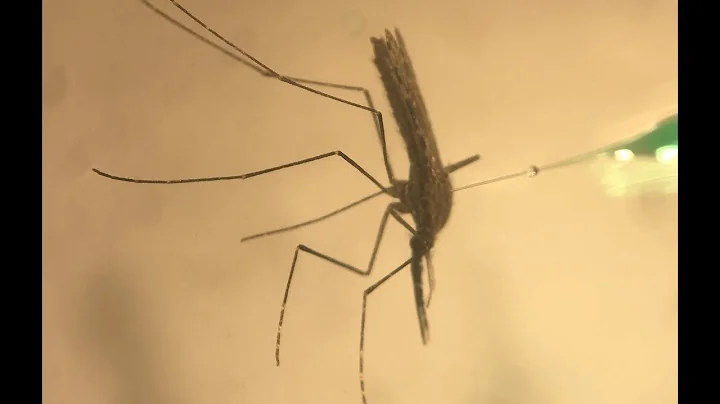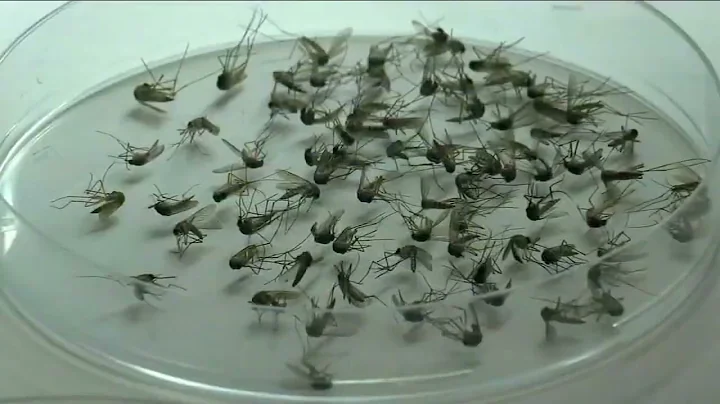
summary: The hot summer is coming, and with it comes the annoying mosquitoes. Think about it, after turning off the lights, when you are drowsy, one after another "little things" are buzzing around your ears. Do you feel like you are facing a powerful enemy at this moment? In addition, after a tiring day of work, adults collapse at this moment! But, don't worry! Recently, a research team from the University of California, Riverside, discovered an efficient strategy for killing mosquitoes by controlling the growth of mosquitoes so that they will never be able to sexually mature and reproduce.
Earlier, a study published in Nature Communication showed that a common type of mosquito, Aedes aegypti , will fly to specific colors, including red, orange, black and cyan, after detecting human messages. Human skin, regardless of pigmentation, will emit long-wave signals in the red-orange range, which may explain why mosquitoes target humans.
After being bitten by a mosquito, the itching is unbearable and may even leave large and small red spots on the skin. More importantly, mosquitoes are vectors for spreading diseases. Since mosquitoes like to live in dark and humid environments, their bodies contain a large number of bacteria and viruses. When they suck blood on the surface of the human body, these bacteria and viruses will enter the human body, causing adverse effects on human health. Influence. Diseases commonly spread by mosquitoes include malaria, dengue fever, Japanese encephalitis, and chikungunya fever. These diseases will cause great harm to the human body. Therefore, effective mosquito control is an effective way to protect human health. .
Recently, a research team from the University of California, Riverside, discovered a new way to block the spread of mosquito-borne diseases. The relevant research results were published in PANS under the title "Essential functions of mosquito ecdysone importers in development and reproduction". Researchers have discovered a gene that can control the growth and reproduction of mosquitoes, preventing disease-carrying mosquitoes from becoming sexually mature and thus unable to reproduce. This may be a breakthrough in the development of mosquito killers .

Figure 1 Research results (Source: PANS)
There is an important steroid hormone in insects, called "ecdysone". Without this hormone, many insects would not mature and reproduce. In 2018, entomologist Naoki Yamanaka of the University of California, Riverside, discovered in Drosophila melanogaster that ecdysone requires a transporter protein to move in and out of insect cells, rather than "in and out" freely. Ecdysone plays an important role in the metamorphosis and development of insects. Without this hormone, insects cannot mature and reproduce.
In this study, researchers discovered that one species of mosquito happens to lack an important ecdysone transporter, , compared with other insects. They studied three main types of disease-causing mosquitoes - Aedes , Anopheles and Culex - and found that all three types of mosquitoes lacked the ecdysone transporter (Ecdysone importer, Ecl). After conducting in-depth studies using Aedes aegypti as an example, the researchers found that this type of mosquito has three other transporters , namely Ecl-2, Ecl-3 and Ecl-4, and these three transporters It is not important for the normal development and reproduction of other insects such as fruit flies. Further research found that among them, Ecl-2 is crucial for the ecdysone-mediated development process, and Ecl-4 is involved in the ecdysone-mediated yolk formation process in females.

Figure 2 Aedes aegypti larvae lacking Ecl-2 have growth defects (Source: PANS)
As a result, researchers have discovered natural differences between mosquitoes and other insects. This difference may provide researchers with a way to Ideas to specifically combat mosquitoes. The research results show that in the absence of Ecl, the alternative ecdysone transporters Ecl-2, Ecl-3, and Ecl-4 play an important role in the development and reproduction of mosquitoes. These ecdysone transporters may be used as development tools. Specifically kills mosquitoes as a potential target .
In this regard, researchers said that they can block the functions of the three ecdysone transporters in mosquitoes in some way without affecting the function of Ecl. It may be possible to only attack mosquitoes without affecting other types of insects. Currently, the research team is screening chemicals that can block three ecdysone transporters in mosquitoes.
In the future, it may be possible to prevent the growth and reproduction of mosquitoes through scientific means, thereby achieving permanent mosquito eradication.
title picture source: Unsplash, for academic communication only. Written by
| Mu Zijiu
typesetting | Luna
End
References:
[1]Hun LV, Okamoto N, Imura E, et al. Essential functions of mosquito ecdysone importers in development and reproduction. Proc Natl Acad Sci U S A. 2022 Jun 21;119(25):e2202932119. doi: 10.1073/pnas.2202932119. Epub 2022 Jun 13. PMID: 35696563.
This article is original from Biological Exploration. Individuals are welcome to forward and share. If any other media or website needs to reprint, the source Biological Exploration must be indicated before the text.
What time does going to bed count as staying up late? Can I catch up on my sleep? Nature Cell sub-journal gives you answers






















